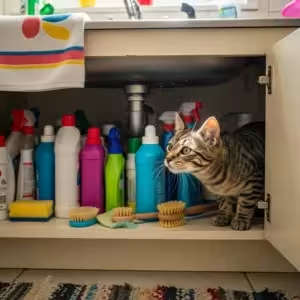
Type II Diabetes
Just like humans, cats can develop diabetes as well, if you don’t pay attention to their diet, physical condition and genetics. Feline diabetes, also known as diabetes mellitus, is a chronic disease that can’t be completely combated but kept under control through meds, diet and exercise.
Diabetes mellitus occurs when the body can’t produce or respond to an important hormone called insulin (insulin is produced by the pancreas). To be more specific, this disease affects the way your cat’s body metabolizes sugar (glucose). Sugar is one of the main sources of fuel for their bodies – and insulin regulates the sugar levels in the cells. In type 2 diabetes, glucose levels are too high because their bodies don’t respond to insulin.
As we said before, this condition can’t be completely cured, but it can be managed through diet, meds and exercise, especially if your cat is obese. According to statistics, more than 1 percent of cats have type 2 diabetes.
Diabetes is also a common genetic disease that can be found in any type of cat breed. However, studies have recently shown that Burmese cats are more likely to develop type 2 diabetes than other breeds, but the cause is not yet known.
Symptoms of diabetes in cats include excessive urination, weight loss (even though they tend to eat more) and increased thirst. Your veterinarian can help you find a concrete diagnostic for your cat and prescribe meds and a balanced carbohydrate-free diet. Some cats may need regular insulin injections, but your vet will give you more details about it.

Deafness
In general, cats that have white fur and blue eyes are more likely to develop deafness, because, in fact, it is a genetic mutation. It’s important to remember that not all white cats that have blue eyes are deaf. Most of the time, deafness may be present at birth which means that this is a genetically inherited disease. Nevertheless, deafness can be quite difficult to detect in young kittens, especially if they are kept in groups.
However, you have to pay more attention to your cat’s behavior and notice how they react to different stimuli. If you think that your cat is deaf, you should take your beloved furry friend to your vet as soon as possible. Unfortunately, there is no treatment for deafness in cats yet, especially for those who have inherited the disease.















